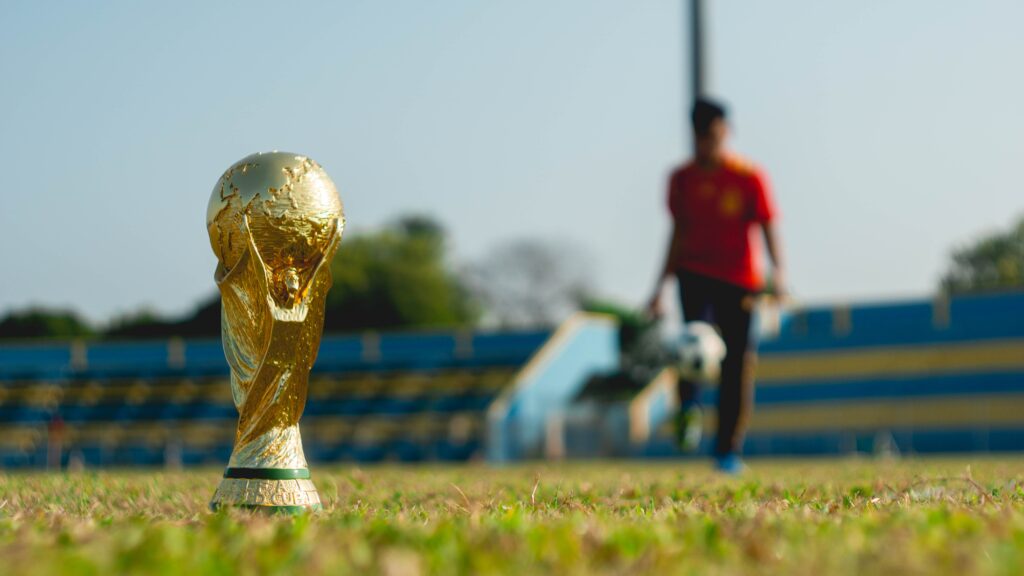
As the soccer world prepares for its biggest event of the year, many are continuing to question the ethics of holding the 2022 FIFA World Cup in Qatar. Allegations of corruption and severe human rights violations have followed the preparations since the initial selection of Qatar as the host country in 2009. Multiple other factors, including Qatar’s own domestic crises, the history of anti-LGBTQ+ sentiment in the country and the question of the participation of Russian athletes have compounded the controversies even further. However, representatives of Qatar, as well as former FIFA president Sepp Blatter, have suggested that the claims of corruption and abuse are rooted in racism.
Qatar’s selection as the World Cup drew criticism after the country became the smallest ever country to host the tournament as well as only the second country to be awarded host after never having qualified for the event as a team. Qatar had also been branded a “high risk” host by FIFA due to its lack of sufficient facilities and the country’s hot climate. And yet, FIFA executives voted overwhelmingly in favor of Qatar across four rounds, beating out high-market destinations such as the United States, South Korea, Japan and Australia.
In 2011, former FA head Lord Triesman accused the representatives of Trinidad and Tobago and Paraguay as well as two other FIFA executives of “improper and unethical behavior” — including requesting and accepting bribes from Qatari officials in exchange for support for the country’s World Cup bid. Furthermore, a whistle-blower alleged that the former FIFA representatives for the Ivory Coast and Cameroon were paid $1.5 million each by Qatar in order to secure their vote. FIFA cleared Qatar of any wrongdoing in a report published in 2014, but a 2021 investigation by AP later revealed that Qatar had hired a former CIA officer to spy on the FIFA officials who had selected the host World Cup host in 2010.
Despite the allegations, Qatar moved ahead with the preparations and began construction on the infrastructure necessary to host the event. However, concerns were soon raised about the additional strain the World Cup placed on the already mistreated migrant workers in Qatar who suffer under the kafala system, a system imposed in many Gulf countries which creates a fixed sponsorship between migrant workers and their employers. Under the kafala system, employers are able to easily manipulate the dependence workers are forced to place on them, leading to millions of cases of abuse. The system, which often facilitates forced labor, is often likened to slavery.
Qatar’s foreign workforce — about 1.2 million workers originating primarily from India, Pakistan, Bangladesh, Nepal and the Philippines — make up 94% of its labor force and yet benefit from the least legal and economic protection in the country. The Guardian warned in 2013 that up to 4,000 workers could die during the World Cup preparations due to safety concerns and mistreatment, claiming migrant workers were denied food, water and adequate pay and safety measures. Workers later confirmed these accusations to Amnesty International, adding that they were subject to verbal abuse and threats alongside the deprivation of basic labor rights. In 2014, The Guardian reported that, as construction continued in Qatar, the death tolls of migrant workers were rapidly increasing.
Though Qatar introduced new reforms to the kafala system in 2020 — including allowing workers to change jobs without requiring their sponsor’s permission, a non-discriminatory minimum wage throughout the country, and the abolishment of the exit permit required to leave the country — millions of foreign workers had already suffered in order to prepare Qatar for the World Cup.
As Qatar tried to resolve the highly-publicized labor abuse scandal — one which caused both FIFA sponsors and fans to consider boycotting the event entirely — the country was embroiled in a diplomatic crisis which resulted in severed diplomatic relations between Qatar and several Gulf countries after Saudi Arabia accused Qatar of fostering terrorism. In the aftermath, some claimed that Qatar’s hosting duties were the root of the dispute, while others suggested that Qatar manufactured the crisis to try and “get away” from the event.
Qatar has also been criticized for the country’s conservative views concerning LGBTQ+ rights, with LGBTQ+ fans and players alike expressing their concerns about traveling to a country in which homosexuality is illegal. Qatari officials responded by assuring the public that pride flags would be allowed at the events, though Qatari Secretary-General al-Thawadi warned against LGBTQ+ public displays of affection in 2013, citing Qatari “culture and traditions.”
Though controversies internal and external threaten to overshadow the event, the 2022 World Cup is still set to happen in Qatar. The continued existence of this year’s Cup begs the question — if human rights abuses weren’t enough to cancel the event, what would it take? Maybe it’s time to reevaluate the human cost the world of international sports often generates.





